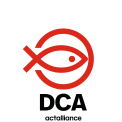Terms of Reference (ToR)
Evaluation of the Project “Creating Safer and More Resilient Communities to Enable Socio-Economic Development in Libya”
1. Background and Context
DanChurchAid (DCA) has finished implementing 30-month project titled “Creating Safer and More Resilient Communities to Enable Socio-Economic Development in Libya,” from 16th May 2022 to 15th August 2024. The project was implemented under funding from the European Union Rapid Response for Neighborhood Development and Cooperation Instrument (EU NDICI) in Tripoli and Sirte, Libya targeting communities affected by explosive remnants of war and armed conflict.
The intervention focuses on four main areas:
- Clearance of explosive remnants of war (ERW) in Tripoli and Sirte
- Provision of explosive ordnance risk education (EORE) to affected communities in Tripoli and Sirte.
- Provision of psychosocial support (PSS) to children in Tripoli and Sirte.
- Capacity building of a new Libyan humanitarian mine action (HMA) NGO in Tripoli.
The overall objective is to improve human security and resilience in affected communities, facilitating the safe return of internally displaced persons (IDPs) and contributing to socio-economic recovery through explosive ordnance (EO) clearance, EORE, and PSS activities.
2. Objectives of the Evaluation
The purpose of the external evaluation is to assess the project’s relevance, effectiveness, efficiency, impact, and sustainability, in accordance with the five OECD-DAC criteria. The evaluation will identify lessons learned, good practices, and provide recommendations for
future interventions.
Specifically, the evaluation aims to:
- Assess the project’s achievements against its objectives and targets.
- Determine how the project contributed to improving safety, resilience, and socio-economic development in Tripoli and Sirte.
- Evaluate the sustainability and impact of the project’s results, particularly in relation to local ownership and long-term benefits.
The final evaluation report will include:
- 3-page maximum executive summary including key findings and recommendations.
- 25-page maximum detailed report.
- Annexes
3. Scope of Work
The evaluation will cover all components of the project implemented in Tripoli and Sirte, with a focus on the following intervention areas:
- Clearance of ERW: Assessing the effectiveness and efficiency of the teams’ survey and clearance work and the impact on safety and reconstruction efforts.
- Risk Education: Evaluating the reach and effectiveness of EORE.
- Psychosocial Support: Reviewing the effectiveness of psychosocial support provided to children in affected communities, and its contribution to resilience-building.
- Capacity Building: Examining the progress made in strengthening the capacity of the new Libyan HMA NGO (Athuka Amana) to operate independently.
4. Evaluation Criteria and Key Questions
The evaluation will be structured around the five OECD-DAC criteria:
Relevance
- Does the intervention address the needs and priorities of the target beneficiaries?
Effectiveness
- To what extent were the project’s objectives and intended outcomes achieved?
- Were the planned results successfully delivered?
Efficiency
- Were resources (funds, expertise, time) used in a cost-effective way to achieve results?
- Could similar results have been achieved with fewer resources?
Impact
- What positive and negative, primary and secondary long-term effects have been produced by the project?
- What would have happened without the project (counterfactual)?
Sustainability
- What is the likelihood that the project’s benefits will continue after its conclusion?
- Has local ownership of project outcomes been established, particularly within the new NGO?
In addition, the evaluator will focus on the following EU-specific criteria:
Coherence
- The extent to which EU engagement works together with other interventions which have similar objectives.
EU Added Value
- The extent to which the development intervention adds benefits to what would have resulted from Member States’ interventions only in the partner country.
Finally, the evaluation team shall also consider cross-cutting issues such as gender mainstreaming, advances in diversity, inclusion, and belonging, contribution to localization, environmental and climate mitigation factors.
5. Methodology
The evaluation methodology should be gender-sensitive and designed to reflect the context and purpose of the evaluation. The evaluation should combine both qualitative and quantitative methods, such as:
- Desk review of project documents and reports.
- Online or in-person key informant interviews with DCA staff, partner NGOs, and other stakeholders as deemed relevant.
6. Deliverables
The external evaluator will be responsible for the following deliverables:
- Inception Report: Including a detailed evaluation plan, methodology, and tools, maximum 10 pages.
- Draft Evaluation Report: Presenting preliminary findings and key insights for feedback from DCA.
- Final Evaluation Report: Adhering to the format noted above, incorporating feedback, and including clear recommendations for future actions.
- Presentation of Findings: To key stakeholders within DCA and partners.
7. Timeline and Work Plan
The evaluation should be conducted over a period of approximately 10-12 weeks, with key milestones as follows:
- Inception Report: mid-November 2024
- Data Collection: End of November – beginning of December 2025
- Draft Evaluation Report: Middle January 2025
- Final Evaluation Report: End of January 2025
- Presentation of Findings: End of January 2025
8. Budget and Logistics
The evaluator should provide a detailed budget breakdown in their proposal, including costs related to travel, accommodation, and field visits any additional costs anticipated for the evaluation.
9. Qualifications of the Evaluator(s)
The evaluator or team of evaluators should have the following qualifications:
- Proven experience in evaluating development and humanitarian projects, preferably in conflict-affected contexts.
- Familiarity with OECD-DAC criteria and evaluation standards.
- Experience in gender-sensitive evaluation methodologies.
- Knowledge of mine action, psychosocial support, and capacity building is an asset.
- Knowledge of the Libyan socio-political context is preferred.
10. Submission of Proposal
Interested evaluators are invited to submit:
- A proposal outlining their approach to the evaluation (maximum 10 pages).
- A company profile, detailing similar work undertaken.
- CV(s) of the evaluator(s) with relevant experience.
- A budget proposal.
Proposals should be submitted to Wisam Kutom, Head of Support Services, Email: [email protected] by Wednesday 6th of November 2024.


